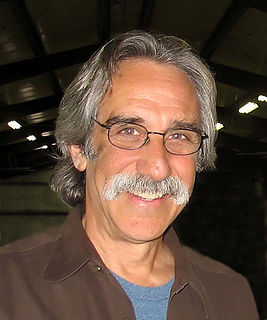A Quote by Mahatma Gandhi
Faith is a function of the heart. It must be enforced by reason. The two are not antagonistic as some think. The more intense one's faith is, the more it whets one's reason. When faith becomes blind it dies.
Related Quotes
So let's set the record straight. Faith is not the opposite of reason. The opposite of faith is unbelief. And reason is not the opposite of faith. The opposite of reason is irrationality. Do some Christians have irrational faith? Sure. Do some skeptics have unreasonable unbelief? You bet. It works both ways.
People think of faith as being something that you don't really believe, a device in helping you believe simply it. Of course that is quite wrong. As Pascal says, faith is a gift of God. It is different from the proof of it. It is the kind of faith God himself places in the heart, of which the proof is often the instrument... He says of it, too, that it is the heart which is aware of God, and not reason. That is what faith is: God perceived by the heart, not be reason.
Any man who stands for progress has to criticize, disbelieve and challenge every item of the old faith. Item by item he has to reason out every nook and corner of the prevailing faith. If after considerable reasoning one is led to believe in any theory or philosophy, his faith is welcomed. His reasoning can be mistaken, wrong, misled and sometimes fallacious. But he is liable to correction because reason is the guiding star of his life. But mere faith and blind faith is dangerous: it dulls the brain, and makes a man reactionary.
The Middle Ages were an era of mysticism, ruled by blind faith and blind obedience to the dogma that faith is superior to reason. The Renaissance was specifically the rebirth of reason, the liberation of man's mind, the triumph of rationality over mysticism - a faltering, incomplete, but impassioned triumph that led to the birth of science, of individualism, of freedom.
Faith, to be faith, must center around something that is not known. Faith, to be faith, must go beyond that for which there is confirming evidence. Faith, to be faith, must go into the unknown. Faith, to be faith, must walk to the edge of the light, and then a few steps into the darkness. If everything has to be known, if everything has to be explained, if everything has to be certified, then there is no need for faith. Indeed, there is no room for it.
Faith and feelings are the warm marrow of evil. Unlike reason, faith and feelings provide no boundary to limit any delusion, any whim. They are virulent poison, giving the numbing illusion of moral sanction to every depravity ever hatched. Faith and feelings are the darkness to reason’s light. Reason is the very substance of truth itself. The glory that is life is wholly embraced through reason. In rejecting it, in rejecting reason, one embraces death.








































